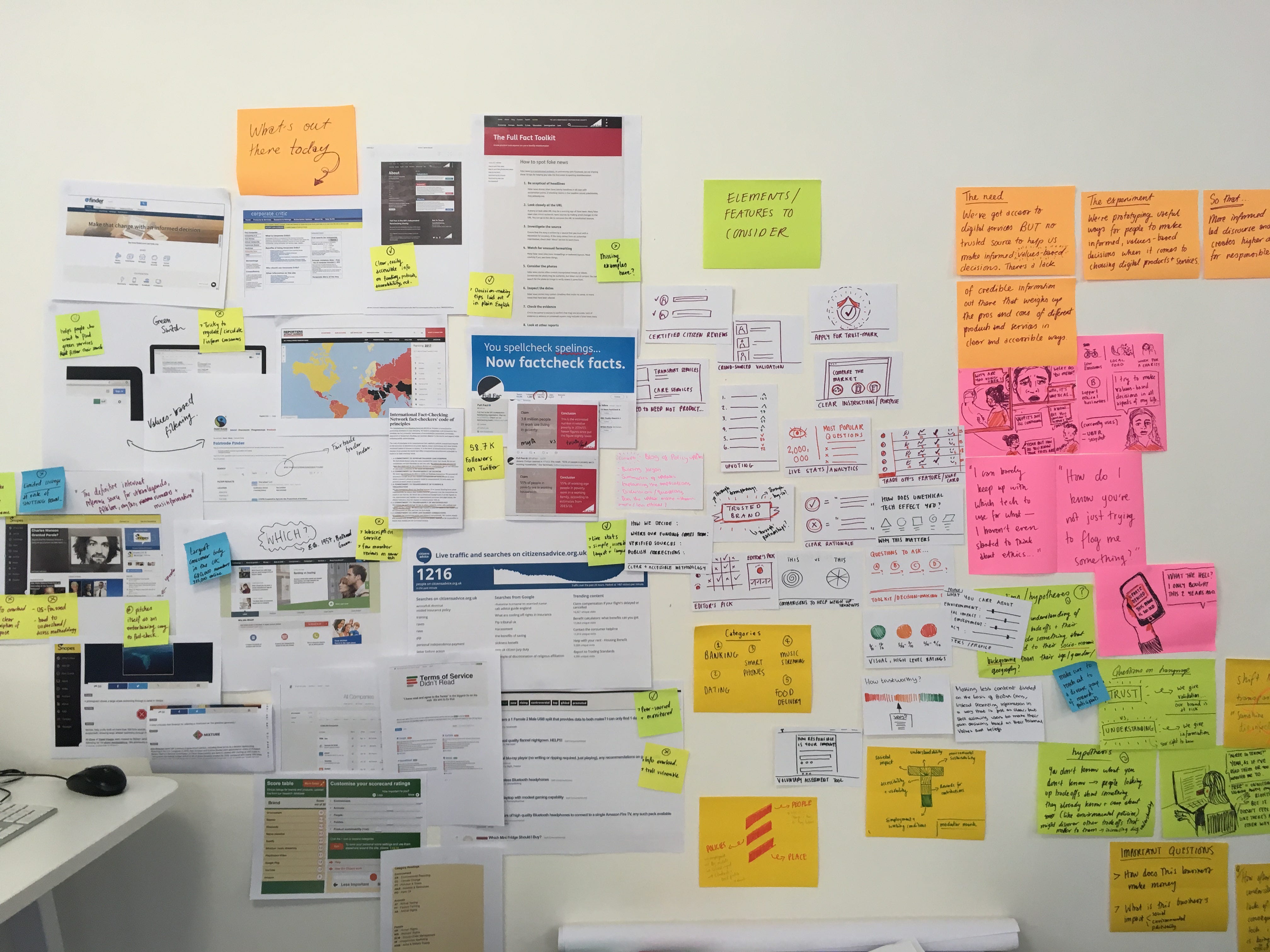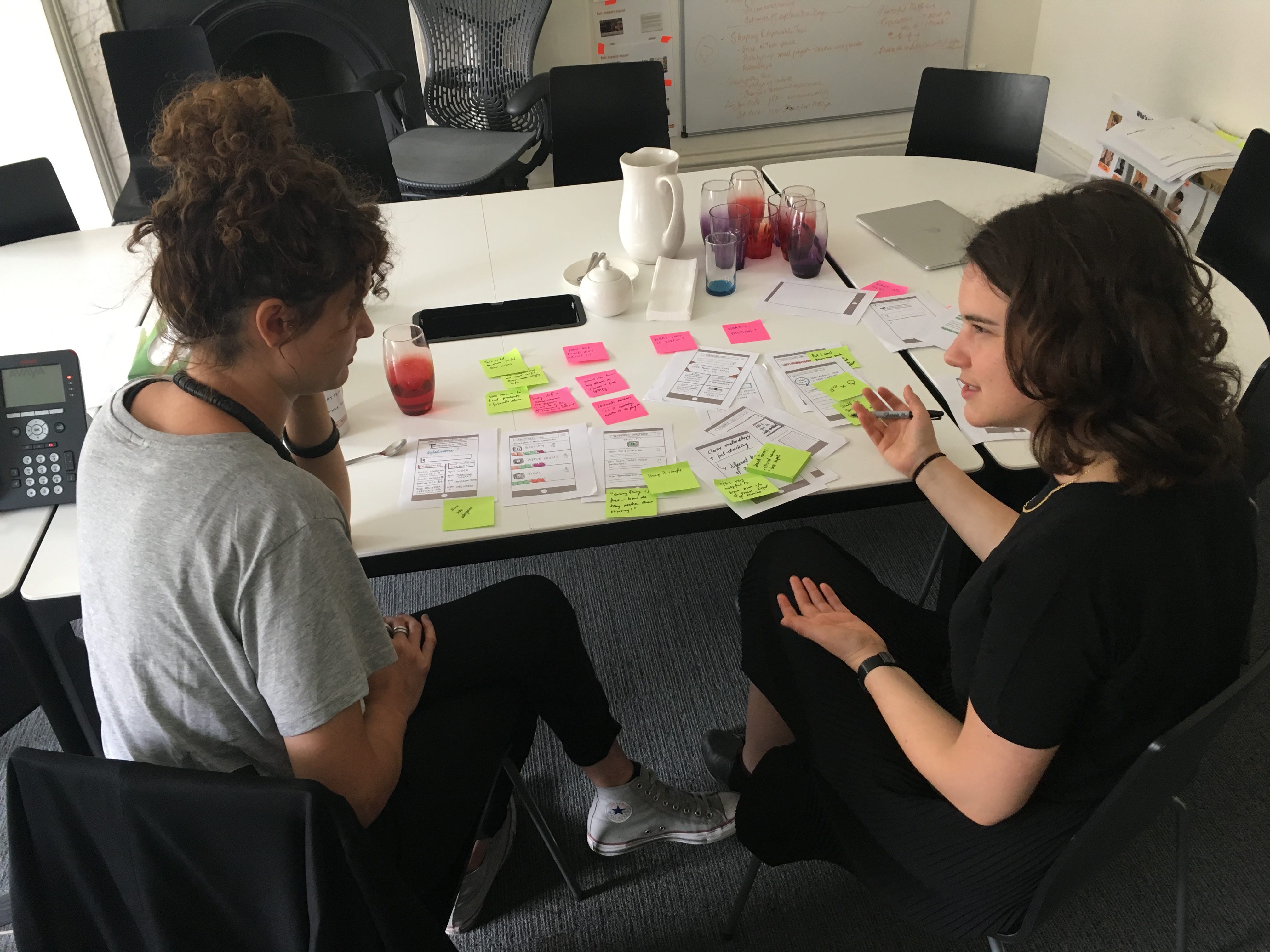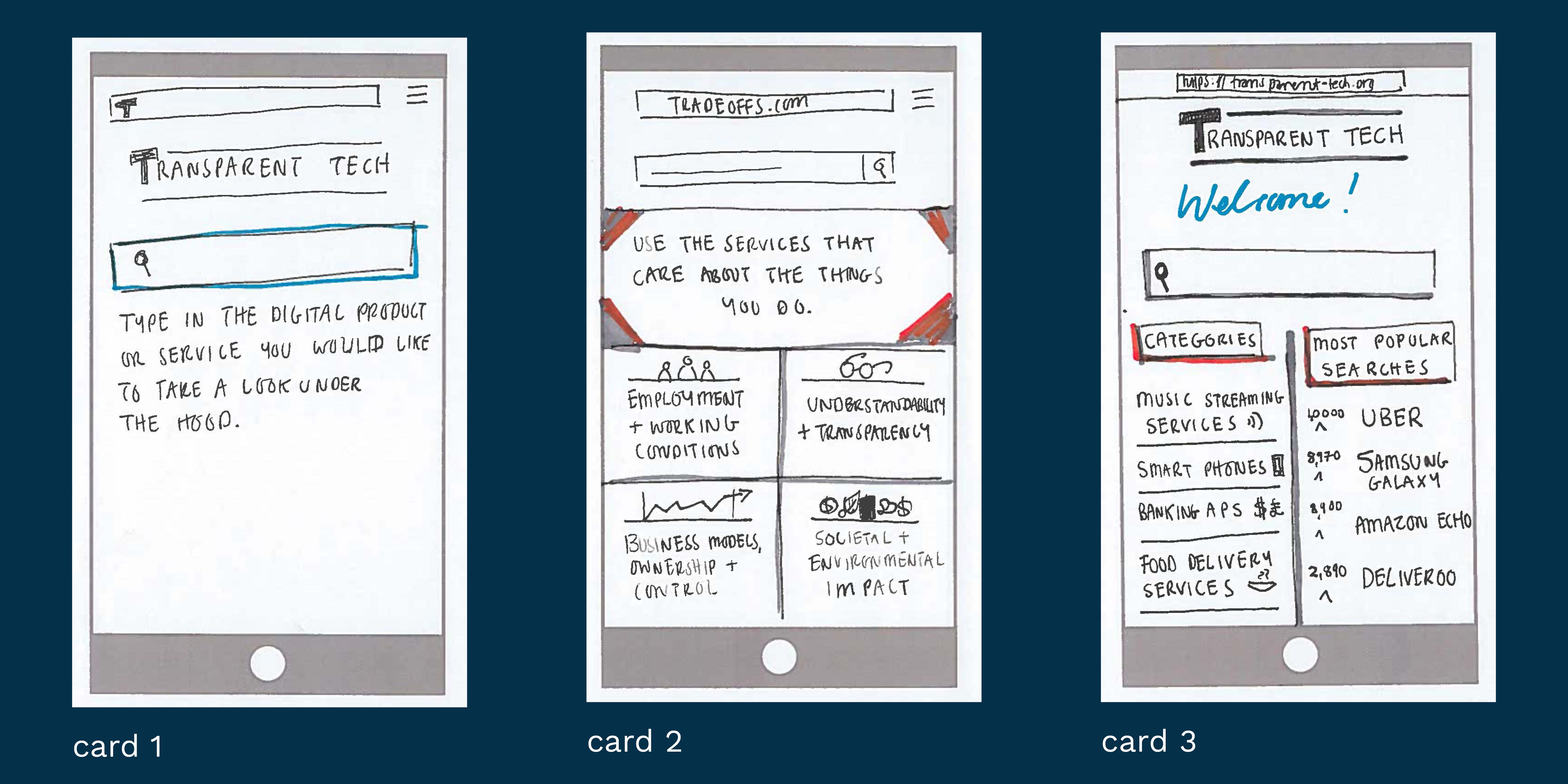Want to make more ethical tech choices? Check Your Tech

You get home from work at 9:30pm on a rainy Tuesday night and plop down next to your housemate on the couch — there’s no way you’re cooking tonight. You pull out your phone and open up a food delivery app.
Your housemate looks over and frowns. “You’re still using that one? Haven’t you heard about how they treat their delivery riders? Switch to this one. They’re way better.”
You sigh and continue (guiltily) with your order. “That’s just spin. They’re all the same.”
Convenience, design and brand will always be driving factors behind how most of us decide which digital products and services to use. There’s no way that digital-first food delivery services, dating apps or music streaming could have shifted millions of people’s habits if they hadn’t been so intuitively designed and well promoted.
But today there’s a fourth contender on people’s minds — responsible technology.
Stories of poor working conditions, slippery policies and controversial politics in the tech world are prompting people to start asking questions like:
Which food delivery service treats their drivers/riders best?
Which music streaming service gives artists the fairest royalties?
Which smartphone has the most ethical supply chain?
Which dating apps have good personal data protection policies?
It’s not easy to answer questions like these (or to debunk fact from a flakey article your mate saw on their Facebook feed). So to help make things simpler, the team at Doteveryone has created a lightweight prototype to explore how consumers could weigh up the values-based ethical trade-offs between digital products and services.
We did this because consumers have more power than they think. We’re exploring how digital understanding can be a catalyst for change by helping people find the information they need to make conscious choices about the digital products and services they support.
Click here or on the image below to try out the prototype (you might need to download the invision app to view the prototype on your phone). It’s important to note that this is just a proof of concept to show how a service like this might operate. Any real service would require rigorous sourcing and fact-checking. (And of course, we don’t recommend you draw your conclusions about any business based on a single prototype!)

Click here to try out the prototype. Please note: some of the categories aren’t yet clickable.
How we got here
1. Discover
We asked people on Twitter to tell us what matters to them when it comes to responsible technology. We found that although nine in ten of our 62 participants have bought products with ethical certifications — even if they cost more — the same percentage still use technology they know has a ‘bad’ or ‘mixed’ reputation. These were for reasons such as:
‘Convenience, sadly.’
‘Often it’s because they [tech companies] have an entrenched position which means taking a stand could make professional life exceptionally difficult.’
‘I am not always aware of the ‘bad’ reputations about those companies.’
But the responses also showed the vast majority of participants said they would find an evidence-based trustmark useful to help them decide which kinds of digital products and service they buy in the future.
‘I think it would encourage people to realise that there is such a thing as untrustworthy tech. It’s amazing how much power tech companies have which is unchecked.’
Yes, but only if I were confident it was a neutral source of information.’
‘There’s no transparency in digital services and it would be great to fully understand the implications of use.’
We’ve made the findings from this research available here under CC BY-SA so others can reuse them.
Horizon scan

The working title for this project was ‘Snopes for Responsible Tech’. But unlike a news story, technology can’t always be boiled down to ‘good’ vs ‘bad’ or ‘true’ vs ‘false’. Instead, there’s a growing need for digital understanding, including the the ethical trade offs between the different products and services that we use.
So we looked what’s out there today by the way of critical, fact-checked information about digital products and services. We found that values-based scorecards like Corporate Critic’s ethiscore are available, but they come at a cost — the minimum subscription for a not-for-profit user is £120 a month. Provenance.org is a fantastic and much more user-friendly resource but it will cost you a minimum of £29 a month to access their analysis. These subscription models are there for a reason – consumer advice services are expensive to run and can’t rely on advertising for revenue but as digital products and services increasingly shape our lives should access to what’s happening behind the scenes become a citizen’s right? Right now these resources are really helpful to a responsible business or research body, but what about a mum who wants to weigh up the ethical tradeoffs between digital banks on the bus on the way home from work?
We looked at popular fact-checking organisations like Full Fact, values-based indexes like Fairtrade, through to search optimisation concepts like The Green Switch and ratings systems like Terms of Service: Didn’t read. There’s a demand for independent trustworthy information to help people make values-based decisions on goods and services they use. Of course there are groups like Consumers International doing great work to drive more demand for responsible digital tech but is there a gap in services when it comes to free resources for off the cuff values-based decision making?
The blind trust in digital products and services is being replaced with the same kind of scrutiny that’s applied to business models with the rise of B Corps or fair pay regulation through The London Living Wage.
2. Define
After exploring people’s opinions and what’s out there today in terms of ‘checking your tech’, we decided to test the following question:
What are the most useful ways to help people who choose technology to consider the ethical tradeoffs between digital products and services — without overcomplicating or oversimplifying information?
3. Develop

We developed a series of prototyping cards and scenarios to test out some different design choices.
Ranking and icons
We found that ranking companies using scoring systems like traffic lights (like Terms of Service; Didn’t Read) could oversimplify things too early.

Prototyping cards
Dynamic rankings
Policies aren’t static, so measuring tradeoffs shouldn’t be either. The idea of an updatable dynamic ratings system, trustmark or set of information surfaced in testing sessions to visualise where a company had come from and where they’re headed in relation to responsible tech.

Sketch from a prototyping session
UI
We tested three ways to find information on the homepage of the prototype: a simple search functionality (card 1), an ‘areas of responsible tech’ page (card 2) and a tech categories option (card 3).

In card 1, research participants found that they needed more prompts as they weren’t sure what to search for.
In card 2, research participants needed more context around what the areas of responsible tech could be applied to.
In card 3, research participants were drawn to the tech categories but generally weren’t interested in what other people were searching for (“I don’t want to make decisions just because other people are doing it”).
We then simplified the areas of responsible technology down into people, policies and profit and used this framework as a guide for researching different aspects of what’s going on behind the scenes of different products and services.

4. Deliver
The insights from our first round of prototyping informed the design of the next iteration — the clickable prototype. Take a look and let us know what you think — send us a note at [email protected] with your feedback.

What else we learned
One of the nice things about design is that you usually find out more than you were expecting to. Here are a few extra things we learned in the process of developing this prototype.
Convenience and cost can trump almost every other factor
A negative experience or knowledge of a product or service engaging in unethical practice are often ‘inconvenient’ to act upon. For most people, the ethical choice cannot mean making a perceived personal sacrifice.
“I’ve been punched in the face by an Uber driver but I still use it because it’s the easiest.”
“I don’t care where it comes from as long as I get the music I want.”
Few people question the rigour of trustmarks/ethics-based certification such as Fairtrade or Organic.
“I’ve never looked into Fairtrade certification because I trust it.”
Buying or using products that are visibly ethical makes people feel good and they find comfort in a ‘stamp of approval’. Is this reliant on a long-term brand-trust element that’s present in Which or Fairtrade but doesn’t yet exist for digital products and services?
Ethical tech isn’t one size fits all
People have different levels of interest in and knowledge about ethical tech. Check Your Tech works in some circumstances (when people want to proactively seek out information) but not in others (when people want to know at a glance or at the point of sale). Also, it would be impossible to include every single ethical consideration in a single service — so that means Check Your Tech can’t address every use case.
Doteveryone is also developing a “trusted tech mark” — a symbol that could appear on products and services indicating they meet our framework for responsible tech. A tool like this could help fill the gap for users who want to make more ethical tech choices but in a reactive way.
Ethical tech is complicated
Thinking about the different ways ethics and good practices can play out in tech is can be complicated. This is a new concept for a lot of people, so we curated the type of information we displayed to help define what people might want to look for. (For example, in smartphones we made sure to talk about working conditions, whereas for music streaming we made sure to include the profit artists make).
What’s next?
As more competitors emerge in every corner of the tech sector, from dating apps to connected home devices, understanding the ethical trade offs between products and services will factor more into people’s decision making. Just like consumer demand for ethical supply chains in food production triggered the Fairtrade movement, the influencing power of consumer demand for responsible technology has the potential to shift the priorities of tech companies and redefine user-friendly.
We now plan to discuss this work with organisations such as Citizens Advice and Which?, to explore the right way to take this forward at scale. If you have any thoughts or want to share feedback, please let us know at [email protected].
___________________________________________________________________
Thank you very much to all of our research participants for their time, to Constantino Christou for research assistance and to Dr Laura James and Cassie Robinson for guidance.